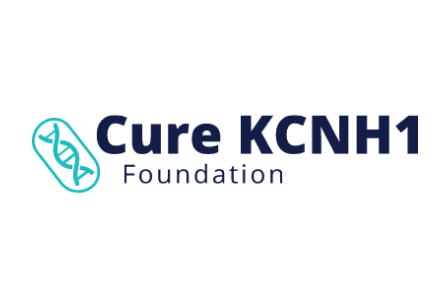Cure KCNH1 Foundation
Cycle 3
KCNH1-related epileptic encephalopathy is an ultra-rare neurological disorder caused by a mutation in the KCNH1 gene; exact prevalence is unknown, and there are probably many cases that are undiagnosed due to lack of access to genetic testing, but currently there are under 100 known cases in the world. Some cases lead to severe, early-onset, intractable (unresponsive to medications) seizures and encephalopathy (widespread disease of the brain that results in altered structure and function).
Last updated 04/30/2025
Clinical
Disease Class
Channelopathies
Neurological diseases
Body Systems
Digestive
Integumentary / Exocrine
Muscular / Skeletal
Nervous / Sensory
Respiratory
Organs
Bones
Brain
Hair
Intestines
Lungs
Mouth / teeth
Muscles
Nails
Nerves
Nose
Spinal cord
Known Genetic Link
Yes, one or more genes directly cause the condition
causative_genes
KCNH1
contributory_genes
None specified / unknown
Type of Inheritance
Autosomal dominant
Newborn Screening
No
Disease Mechanism(s)
Abnormal channel conductance
Altered channel kinetics
Cilia dysfunction
Ion channel dysfunction
Age of Onset
Prebirth
Average Age at Diagnosis
Early childhood (age 1+-5)
Life Expectancy
Adolescence (12-17)
Adulthood (age 18-64)
Middle childhood (6-11)
Affected Sex(es)
Female
Intersex
Male
National Prevalence
11-50
Global Prevalence
101-1000
National Incidence
Less than 10
Global Incidence
Less than 10
Symptoms / Phenotypes
abnormal digit morphology
autism
craniofacial abnormalities
developmental delay
feeding difficulties
gastrointestinal disorders
gingival overgrowth
hypertrichosis
intellectual delay / global developmental delay
movement disorders / ataxia / tremor
seizures / epilepsy
sleep disorders
speech problems / apraxia
Biomarkers
Diagnostic
Existing Therapies
Off-Label Drug Use
Organizational & Research
Cell Lines
iPSCs
Cell Lines, Institution
Northwestern University
Transcripta Bio
Universitätsklinikum Tübingen
iXCells Biotechnologies
Cell Lines, Involvement
Consulted
Funded
Own
Cell Lines, share
Some of our cell lines are freely available
Disease Model
Mouse
Organoids
Other
Disease Model, Involvement
Consulted
Funded
Own
Disease Model, share
Some of our disease models are freely available
Clinical Trial Role
Data sharing
Biobank, Institution
Van Andel Institute
Biobank, Involvement
Own
Center of Excellence, Institution
None
Registry
Yes, we have a registry that we created
Data Collected, Registry
Clinical data
Electronic health records/electronic medical records
Genetic data
Longitudinal natural history data
Medication usage
Patient contact info
Patient-reported data
Data Entered by, Registry
Both
Platform, Registry
Matrix
Natural History Study
No, we do not have a natural history study, but we plan to create or collaborate on one
FDA Patient Listening Session
No
FDA Patient-Focused Drug Development (PFDD) Program
No
ICD Codes
No, we do not have any ICD codes
Diagnostic Guidelines
No
Science Advisory Board Policies
No policies
Research Network Policies
Has CRN but no policies
Research Roadmap
Yes we have a Research Roadmap, and will share policies
International Chapters
Europe
International Partners
Europe
